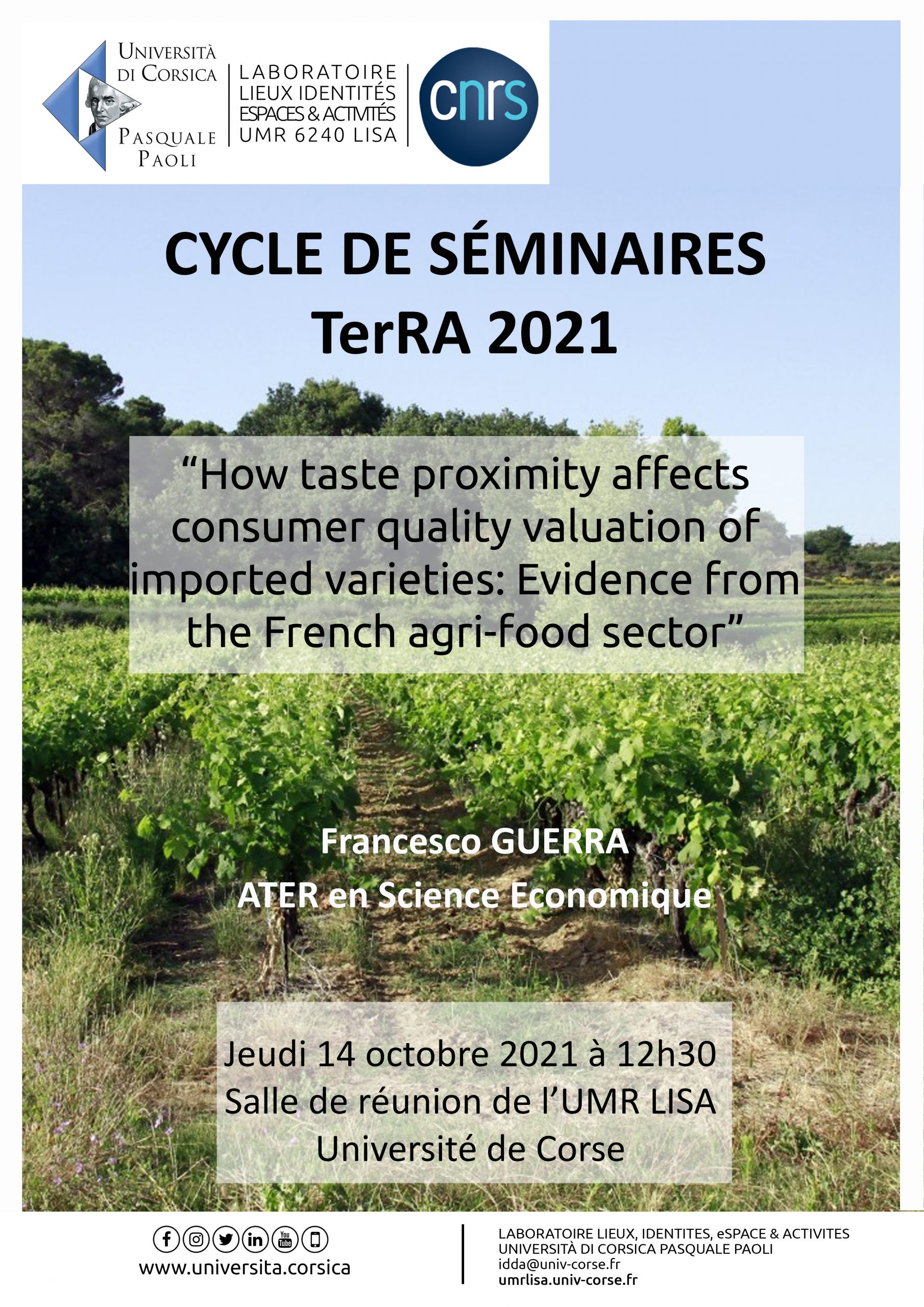Dans le cadre du cycle de séminaires TerRA, Francesco Guerra, ATER en Science Economique, animera un séminaire le jeudi 14 octobre à 12h30 intitulé : « How taste proximity affects consumer quality valuation of imported varieties: Evidence from the French agri-food sector » en salle de réunion de l’UMR LISA.
Résumé :
Consumer tastes for food products can differ substantially between countries and represent an important element of trade promotion. Few studies indicate that divergences in consumer tastes may also generate differences in the perception of the attractiveness of products. In this study, we investigate how cross-country taste proximity for food products affects consumer quality valuation of imported varieties in destination countries. Based on firm-product level customs data on French exports, we analyze how differences in consumer tastes across destination markets influence the export revenues of vertically differentiated varieties. To identify taste proximity, we rely on data gathered from the online travel company TripAdvisor, which reports information on the type of cuisine offered in restaurants all over the world. The measure of taste proximity is derived through the use of a control function in a gravity model and corresponds to the unobserved affinity in taste for food products between consumers of trading partners. We find that the quality of exported products and their prices are positively correlated and that low-quality varieties obtain larger revenues in destination markets because of their competitive price. Nonetheless, we observe that firms that export high-quality products exhibit relatively larger export revenues in countries with high taste proximity. Our results indicate that quality is more strongly appreciated and consumers are more willing to spend on high-quality products in countries with a taste similar to that of French consumers.

